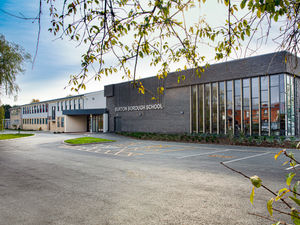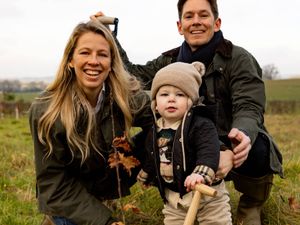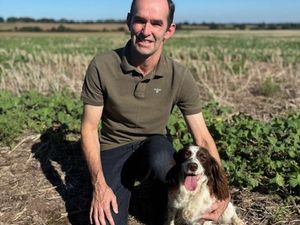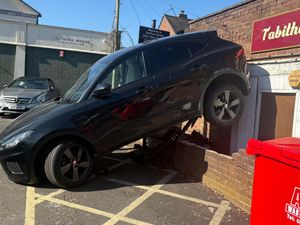Battle Back Centre in Shropshire helps wounded soldiers' recovery
[gallery] On a daily basis British soldiers are laying down their lives on the frontline, but what happens when they are injured and need rehabilitating?
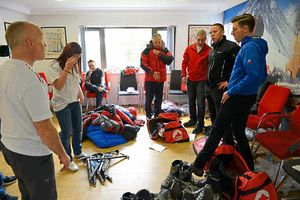
The Battle Back Centre in Lilleshall, near Newport, provides sports and adventurous activities for wounded, injured and sick servicemen and women from the Army, RAF and Navy which helps with their recovery either back into service or make a transition into civilian life.
Sapper Lyndon Chatting-Walters is a 23-year-old former combat engineer in 23 Engineer Regiment.
He was wounded in Afghanistan in July 2008 and his injuries included four broken vertebrae.
Despite having been told he might never walk again, he worked hard on his rehabilitation and returned to the front line in August 2010.
But his injuries proved to be too severe for service and he had to undergo further spinal surgery.
In early 2012 he completed a rehabilitation course at the Battle Back Centre.
Mr Chatting-Walters, now a veteran, said the centre has helped him get focus back in his life.
He said: "I was out on a rescue operation in Helmand Province for a vehicle which had been caught up in an ambush.
"We were under ambushes all day and when we finally came out we were ambushed again close to an orchard and an IED (improvised explosion device) went off below me.
"The vehicle I was on top of went flying and I went flying with it and I was found 60 feet away.
"I had four broken vertebrae, a broken leg and arm and had a bleed in my lungs.
"I had shrapnel injuries to the thighs and a broken jaw.
"The others thought I was dead.
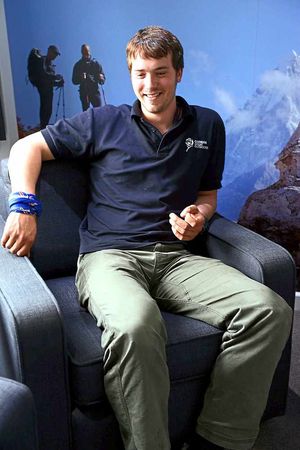
"It was a terrifying and life changing experience, my life has never been the same since."
He was transferred to the UK and spent three weeks in a coma in Selly Oak Hospital in Brimingham and was unable to leave his bed for a further seven weeks after that.
Despite his brief return to the frontline, Mr Chatting-Walters was diagnosed with post-traumatic stress disorder and went to the Battle Back Centre to help his recovery.
The activities at the centre promote self-confidence and improve motivation to aid recovery.
The tailored programmes help with both physical and psychological challenges.
"Before I came to the centre I had lost my one dream and I was really down," he said.
"But I came here and took part in one of the courses and it really rekindled everything for me and made me feel I had a place and a future."
Since he came to the centre Mr Chatting-Walters has become an outdoor instructor with Battle Back in the Lake District where he lives and says the centre contributed to him being able to move on from the trauma he experienced.
He added: "I can't pick one highlight from my Battle Back experience because there were so many. From the varied activities and help both physically and mentally, the encouragement and support, and the interaction. This has given me the massive confidence boost I needed."
The centre is full of stories of soldiers suffering traumatic experience which completely change their lives.
Private Paul Hunter, 24, was injured in June 2010 when an IED exploded close to him when he was just 20-years-old.
Private Hunter said: "I was out on foot patrol with about 18 others and an IED went off.
"I got shrapnel in my legs, and open fracture to the right femur and lots of damage to my left calf.
"It was the most terrifying experience of my life.
"The first thing I asked when I came around was did I still have my legs."
Private Hunter was also treated at Selly Oak and the Queen Elizabeth Hospital in Birmingham.
"I couldn't walk to begin with and was in a wheelchair," he said.
"It was like retraining yourself to walk with lots of different exercises.
"I needed all sorts installed in my house like bath boards, hand rails for the stairs and other aides. That is hard and something you are not prepared for at 20.
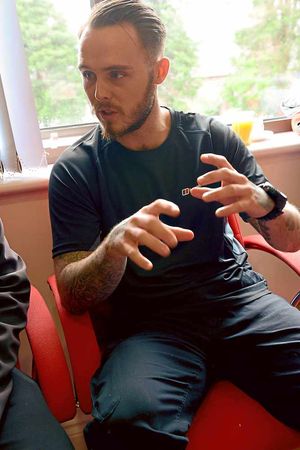
"After my initial rehabilitation I tried to go back to work but I just wasn't fit enough and was signed off sick.
"That is hard because you are at home and you feel quite isolated and cut off.
"But when I was given the opportunity to come to the centre and take part in their activity courses it was great.
"It was amazing to get socialising again and meeting other servicemen who had also been injured."
Mr Hunter has since had a daughter Dotty who is seven-months-old, something which he says he is privileged to have.
"I have been very lucky that's for sure," he said.
Lieutenant Colonel Ian Thomas is head of Battle Back and works from the centre, which is funded by the Royal British Legion.
He said he has only seen one person in his time there leave the centre feeling they hadn't got something form the five-day courses they run.
He said: "We get servicemen with a variety of injuries come here.
"We have triple and double amputees, those with brain injuries, with terminal illnesses, mental health issues and post traumatic stress disorder.
"The response we get here is amazingly positive.
"People come here looking glum and leave with a smile and positive outlook."
The centre's activities, which run over a five-day course, include climbing, watersports, caving, wheelchair basketball, clay shooting and archery.
There is residential accommodation for 24 people at a time, with 16 rooms fully equipped for those who need wheelchair access or have other requirements.
If you are a serving man or woman and would like to attend a course at The Battle Back Centre as part of your individual recovery pathway, please contact your Unit Welfare or Personnel Recovery Officer. If you have any queries about the Centre or course content please contact Battle Back staff on 01952 815673.
Tough summits challenge to raise vital cash for Shropshire centre:
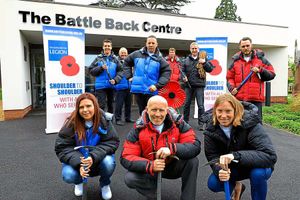
A group of MPs, serving soldiers and mountaineering experts are preparing to embark upon an ambitious challenge to raise cash for a specialist centre which helps injured servicemen.
The 12-strong group will tackle the equatorial summits of Iliniza Norte, Cayambe and Cotopaxi in Ecuador – one of the world's highest active volcanoes standing at 19,347 feet.
They hope to raise £10,000 for The Royal British Legion's Battle Back Centre, which is based at the Lilleshall National Sports Centre, near Newport.
The centre is a training base for wounded, injured and sick members of the Armed Forces.
Participants undertake sports such as climbing, caving, wheelchair basketball, clay shooting and archery to help overcome physical and psychological challenges, promote self-confidence and improve motivation to aid recovery. Those involved in the volcano challenge include MPs Greg Mulholland, John Mann and Tracey Crouch from the UK Parliamentary Mountaineering Group and serving soldiers who have recently been helped by the Battle Back Centre.
Dave Bunting, head coach at the Battle Back Centre and the expedition leader with Carnegie Great Outdoors, said: "The Ecuador Expedition will see a group of serving soldiers and veterans who have spent time at the centre take part in this unique, once in a lifetime experience which we will hope will further enhance their recovery and future development.
"It is a physically and psychologically demanding challenge that will push the whole team to its limits."
The expedition will provide a tough challenge, bringing the mixed team together to cope with extreme altitude, temperatures of -10C, days of acclimatisation and a gruelling final push for the summit of Cotopaxi starting at 1am.
Lyndon Chatting-Walters first attended the Battle Back Centre in 2012 after being wounded in Afghanistan.
He said: "I can't pick one highlight from my Battle Back experience because there were so many.
"From the varied activities and help both physically and mentally, the encouragement and support, and the interaction.
"The support I received has given me the massive confidence boost I needed."
The Battle Back Centre was officially opened in November 2012 by Olympic gymnastics medalist Beth Tweddle.
The Royal British Legion has pumped £27m into the centre over 10 years.
It is run in conjunction with the Ministry of Defence and Sport England and gives wounded, sick and injured servicemen the chance to try new sports.
Coaching and evaluation are provided by experts from Leeds Metropolitan University.
Four other centres are planned – one in Germany and the others at Catterick, Colchester and Kibworth.
But Shropshire-based Lilleshall will be the main site.
The centre has health professionals provided by the MoD but is entirely funded and run by the RBL and the Poppy Appeal, which has been running for more than 90 years.
The expedition challenge takes place from May 25 to June 10.
Visit www.justgiving.com/teams/TRBLEcuador2014 to support.

